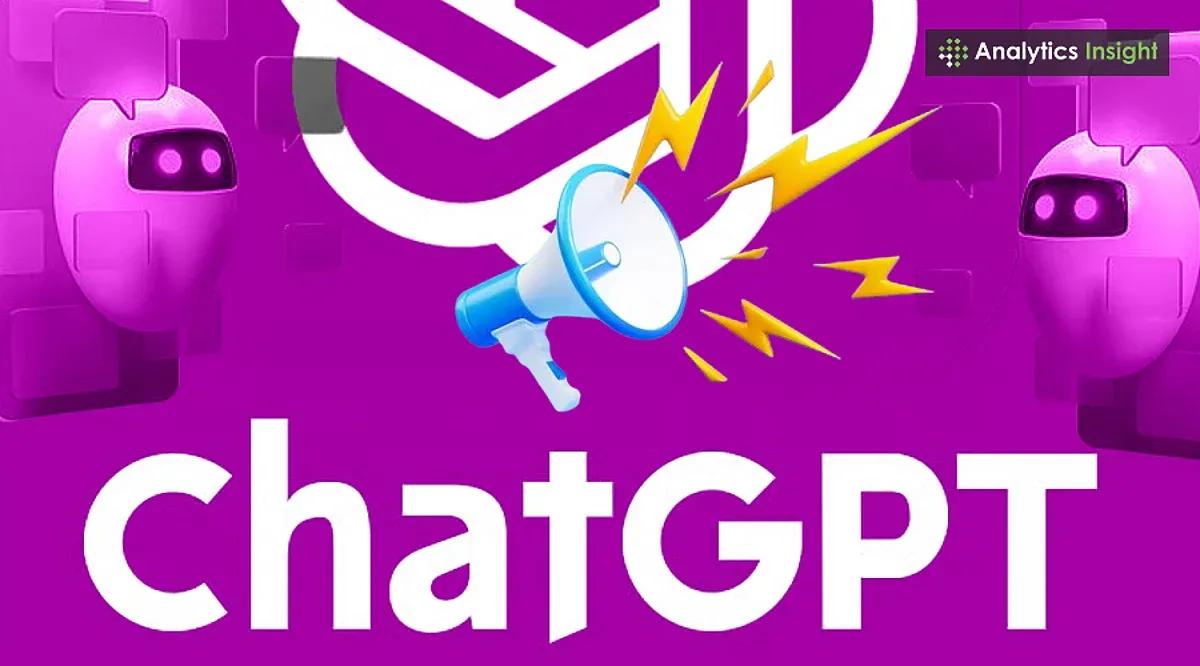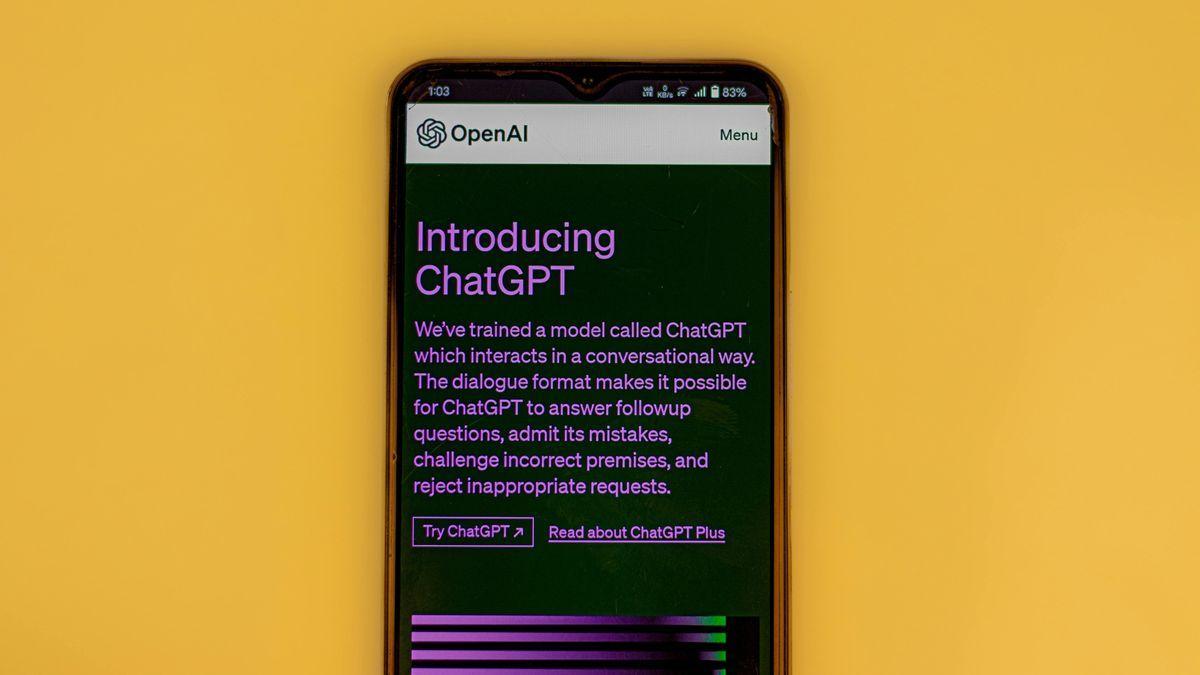OpenAI Considers Ads for ChatGPT: Balancing Revenue and User Experience
3 Sources
3 Sources
[1]
The head of ChatGPT won't rule out adding ads
OpenAI is considering ways to bring in additional revenue, and bringing ads to ChatGPT is one option on the table. While being interviewed on Decoder, ChatGPT head Nick Turley said he's "humble enough not to rule it out categorically," but hedged that OpenAI would need to "be very thoughtful and tasteful" about how ads could be integrated into ChatGPT. "We will build other products, and those other products can have different dimensions to them, and maybe ChatGPT just isn't an ads-y product because it's just so deeply accountable to your goals. But it doesn't mean that we wouldn't build other things in the future, too," Turley said. "I think it's good to preserve optionality, but I also really do want to emphasize how incredible the subscription model is, how fast it's growing, and how untapped a lot of the opportunities are." Bloomberg reported in March that OpenAI is expecting to generate $12.7 billion in revenue this year through subscriptions, more than triple the $3.7 billion in annual revenue it reportedly generated in 2024. The company still burns more money than it makes, however, and isn't expecting to be cash-flow positive until 2029. Turley says that ChatGPT just surpassed 700 million total users. According to the last figures reported in April, the service has 20 million paid subscribers. "I actually don't view the fact that the vast majority of our users are free as necessarily a liability," Turley said. "I really think it's a funnel that we can build off of to build differentiated offerings for people who are willing to pay." OpenAI CEO Sam Altman has expressed mixed feelings about bringing ads to the company's flagship chatbot. While at a fireside chat at Harvard Business School last year, Altman said that merging ads with AI is "sort of uniquely unsettling to me" and would be considered a "last resort" for ChatGPT. On the first episode of OpenAI's podcast in June, however, Altman said he's "not totally against it." These considerations come as Elon Musk-owned rival xAI has firmer plans to include ads in Grok's responses in the future. Another way OpenAI is looking to build revenue is by taking a cut of product purchases via ChatGPT recommendations. Turley says this is "something we are actively exploring with some of the merchants we're talking to," and that the project is called "Commerce in ChatGPT." Not allowing affiliate revenue to influence ChatGPT product recommendations is a focus for OpenAI, according to Turley. "All the demos that we have in this space internally make this extremely clear," Turley said. "I think the magic of ChatGPT is that it independently chooses your products without any interference, and that would be an important thing to preserve." For the full interview, go and listen to the latest episode of Decoder.
[2]
OpenAI won't rule out ads on ChatGPT - but only if they're 'thoughtful and tasteful'
Head of ChatGPT Nick Turley says ads could be implemented in the future in some OpenAI products The head of ChatGPT says OpenAI could implement ads on its products in the future, but only if they are "thoughtful and tasteful." Speaking to The Verge, Nick Turley, the head of ChatGPT, was quizzed on the possibility of the AI chatbot getting ads in the future. While reluctant to respond, he did give an insight into how he views advertising for ChatGPT, and couldn't rule it out completely. Turley said, "Look, since you're really trying to get me to comment on ads, I have become humble enough not to make crazy, extreme, long-term statements on a question like that, because maybe there is a certain market where people aren't willing to pay us, yet we want to offer the best, latest, and greatest. Maybe that would be a place to consider other indirect forms of monetization." He added that if the company were to ever implement ads, they would need to do so in a "very, very careful and deliberate because I really think that the thing that makes ChatGPT magical is the fact that you get the best answer for you, and there's no other stakeholder in the middle." While that sounds pretty positive for the future of an ad-free ChatGPT experience, Turley couldn't rule it out altogether, instead opting for a more diplomatic approach. He said, "I'm humble enough not to rule it out categorically, but we'd have to be very thoughtful and tasteful about it." Maybe more positive, however, is that he seems to think that if ads were to appear on OpenAI products, then it's likely to be on other offerings from the company, not the world's most popular AI chatbot with over 700 million weekly users. He said, "We will build other products, and those other products can have different dimensions to them, and maybe ChatGPT just isn't an ads-y product because it's just so deeply accountable to your goals." While Nick Turley's comments leave me feeling hopeful for an ad-free ChatGPT experience for the foreseeable future, I feel less positive about an even more heavily tiered platform that paywalls its best features. Just yesterday, ChatGPT started to roll out Gmail connectivity, but its best capabilities are paywalled behind ChatGPT Pro, a $200 / £200 a month subscription. As a ChatGPT Plus subscriber who pays $20 / £20 a month, I've noticed the sheer difference in capabilities between the paid version and the free one, and while I understand OpenAI needs to make money as a business, $240 / £240 a year feels like a steep ask. I'm worried about the future of AI being paywalled behind premium subscriptions, and I think it's the direction we're heading in. Even companies like Google have offered premium AI subscriptions with the best Pixel smartphones for a year; however, following that initial period, the same Gemini AI capabilities become paid. If subscriptions and basic free tiers are the way AI companies justify ad-free chatbots, then I'm more pro-ads than I ever thought I'd be. In fact, give me an ad-riddled ChatGPT with full access to the same as a Plus account for free; I'd take that over forking out a hefty amount of money every single month.
[3]
Will ChatGPT Have Ads Soon? Here's the Truth
ChatGPT Ads are becoming a new tool for brands to reach audiences with precision. Will OpenAI really put commercials in it? This guide breaks down what's going on with ChatGPT's ad plans, what it means for you, and how to stay in charge, all in plain English. OpenAI is spending a ton of money. Keeping ChatGPT running costs millions every day for servers and research. With so many people using the free version, it's costing them a bunch. ChatGPT AI showcases the next step in conversational Artificial Intelligence. They're a big tech company, but they're losing money each year. So, to keep the free version around, ads seem like a good option, especially since they're hoping to make a significant amount of money from ads.
Share
Share
Copy Link
OpenAI's head of ChatGPT, Nick Turley, discusses the possibility of introducing ads to the AI chatbot, emphasizing the need for thoughtful implementation while preserving the platform's core value.
OpenAI Considers Advertising for ChatGPT
OpenAI, the company behind the popular AI chatbot ChatGPT, is exploring various revenue streams to support its growing platform. Nick Turley, head of ChatGPT, recently discussed the possibility of introducing ads to the service, emphasizing that any such implementation would need to be "very thoughtful and tasteful"
1
2
.
Source: The Verge
Balancing User Experience and Revenue
While Turley didn't rule out the possibility of ads entirely, he stressed the importance of preserving ChatGPT's core value proposition. "I really think that the thing that makes ChatGPT magical is the fact that you get the best answer for you, and there's no other stakeholder in the middle," Turley stated
2
. This sentiment echoes previous comments made by OpenAI CEO Sam Altman, who described merging ads with AI as "uniquely unsettling" and a "last resort" for ChatGPT1
.Subscription Model Success and Future Plans
OpenAI's current subscription model for ChatGPT has shown significant growth. The company reportedly expects to generate $12.7 billion in revenue this year through subscriptions, more than triple the $3.7 billion in annual revenue from 2024
1
. Turley revealed that ChatGPT has surpassed 700 million total users, with 20 million paid subscribers as of April1
2
.Exploring Alternative Revenue Streams
In addition to considering ads, OpenAI is exploring other revenue-generating options:
-
Commerce in ChatGPT: This project involves taking a cut of product purchases made through ChatGPT recommendations. Turley emphasized that maintaining the integrity of product recommendations without affiliate revenue influence is crucial
1
. -
Tiered Access: OpenAI has implemented a tiered system, with premium features like Gmail connectivity available only to ChatGPT Pro subscribers at $200/£200 per month
2
.
Related Stories
Industry Trends and Competitive Landscape

Source: Analytics Insight
The consideration of ads for ChatGPT comes as competitors in the AI space are making similar moves. Elon Musk's xAI has firmer plans to include ads in responses from its chatbot, Grok
1
. This trend reflects the broader challenge faced by AI companies in monetizing their services while maintaining user trust and engagement.User Concerns and Future Outlook
As OpenAI explores various monetization strategies, some users express concerns about the potential impact on accessibility and user experience. The growing disparity between free and paid tiers has led to debates about the future of AI accessibility, with some arguing for ad-supported models to maintain free access to advanced features
2
.While OpenAI continues to prioritize its subscription model, Turley's comments suggest that the company remains open to various monetization strategies to support its ongoing development and operational costs. As ChatGPT evolves, balancing user experience, accessibility, and revenue generation will remain a key challenge for OpenAI in the competitive AI landscape.
References
Summarized by
Navi
[1]
[3]
Related Stories
OpenAI Explores Advertising for ChatGPT Amid Financial Pressures
03 Dec 2024•Business and Economy

OpenAI rolls out ChatGPT ads at rates matching Super Bowl broadcasts as monetization begins
01 Feb 2026•Business and Economy

OpenAI explores ChatGPT ads with sponsored content prioritization to monetize 900M users
24 Dec 2025•Business and Economy

Recent Highlights
1
Pentagon threatens to cut Anthropic's $200M contract over AI safety restrictions in military ops
Policy and Regulation

2
ByteDance's Seedance 2.0 AI video generator triggers copyright infringement battle with Hollywood
Policy and Regulation

3
OpenAI closes in on $100 billion funding round with $850 billion valuation as spending plans shift
Business and Economy





